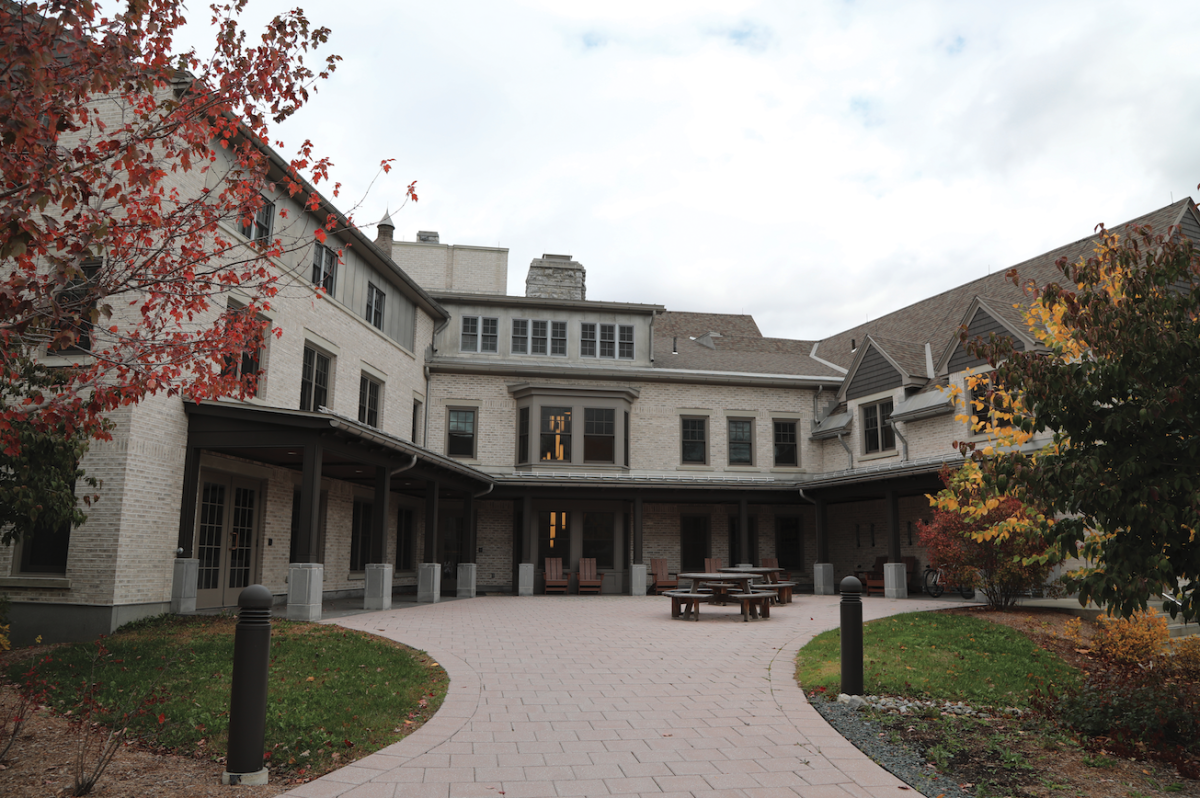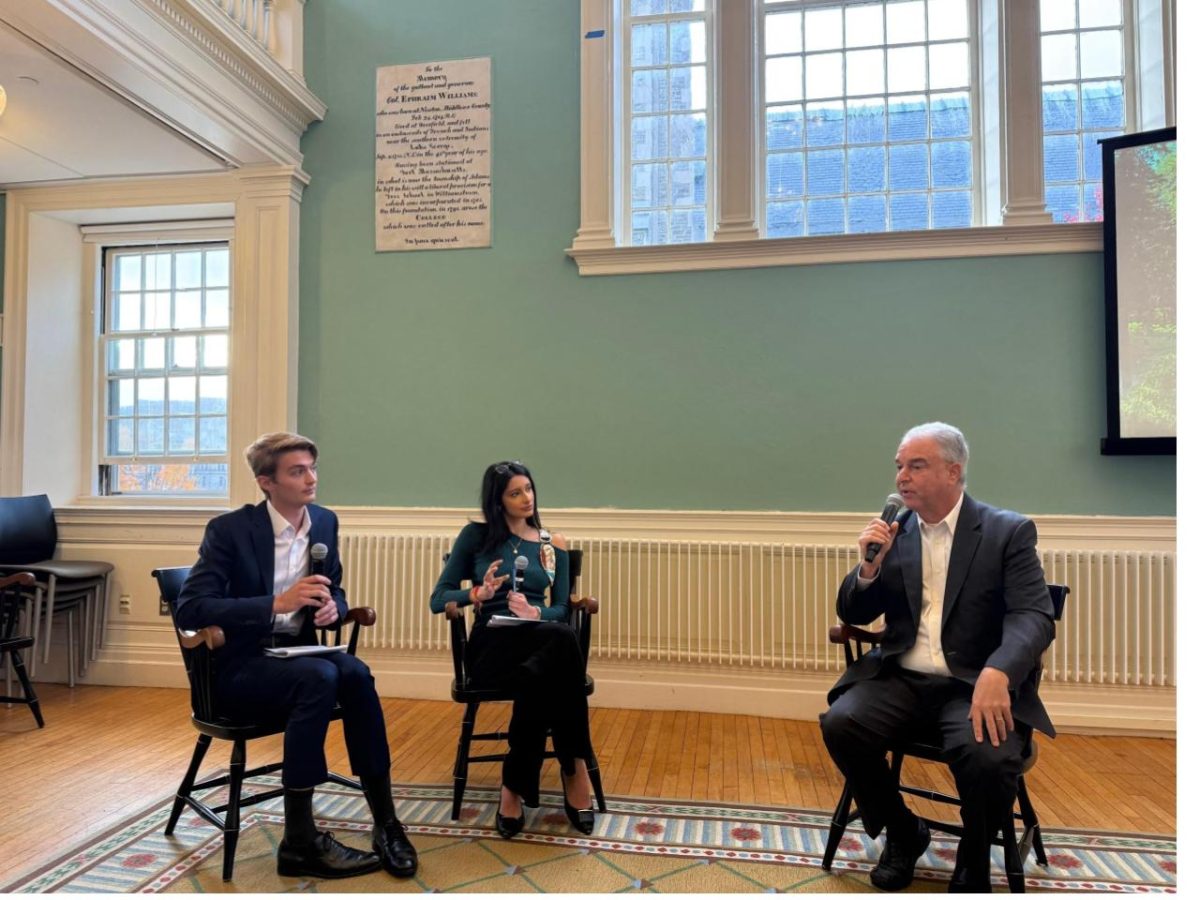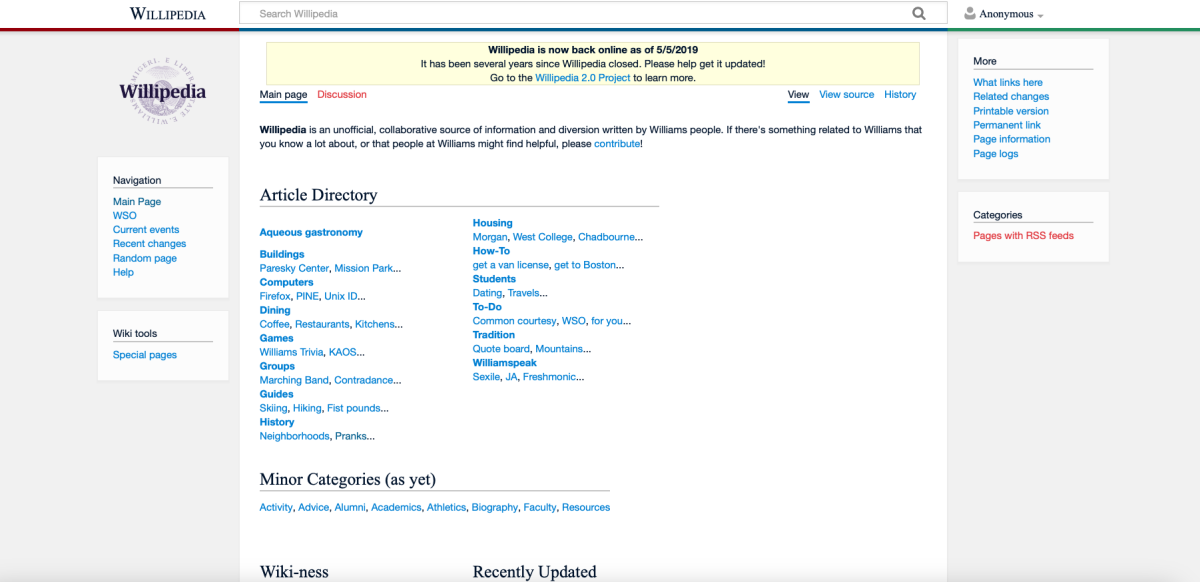
In an all-faculty meeting on Wednesday, President Maud S. Mandel announced that she is strongly considering adopting either a trimester or a three-semester model for the 2020-2021 academic calendar. This adjustment to the academic calendar, Mandel said, has the potential to mitigate some of the difficulties posed to the College by the COVID-19 pandemic.
Mandel emphasized in a later interview with the Record that no final determination on the academic calendar has been reached, but that both the trimester and the three-semester systems are under serious consideration. Furthermore, any potential changes to the standard two-semester academic calendar — including trimesters — would likely be made whether or not classes are on-campus in the fall, according to Mandel. They would also likely be temporary changes, only in effect for the upcoming academic year. Currently, the administration is collecting feedback from the faculty and hopes to reach a decision on the academic schedule by the end of next week.
Under a three-semester model, a fall term, spring term and summer term would be offered, all of which would be similar lengths as a typical College semester. Students would only be required to attend two of these terms to fulfill academic requirements.
Under a trimester model, three different terms, each shorter than the standard semester, would replace the fall and spring semesters. The three trimesters would run during the normal academic year, as opposed to through the summer. Discussions are ongoing about whether, under this model, all three trimesters would be required or if students would be permitted to select two of them. Both models would likely involve the cancellation of Winter Study.
Although these two proposals are the leading options being considered by the administration at the moment, faculty feedback could lead to reevaluations. “I think we’re trying to assess that feedback, and if the feedback fundamentally challenges the model, we might move away from it,” Mandel said. “But if it doesn’t, then I think that [either trimesters or three semesters] would become the model.”
Mandel hopes to make a determination about the academic calendar substantially before deciding whether to resume in-person classes in the fall. “We plan to do this fairly quickly,” Mandel said. “The goal is, I hope, sometime by next week to have picked our model so that we can actually get it into production. Once we have a model, there’s so much to be done on lots of small questions.” In contrast, Mandel has set a deadline of July 1 to determine whether the fall term will be on- or off-campus.
Both proposed solutions would involve substantial changes to curricula and research, as many departments and professors would have to reconfigure their courses. Furthermore, either model would drastically alter the calendar in ways that would require significant adjustments outside the classroom.
However, each of these models also comes with different potential benefits, according to Mandel, who mentioned student choice as a potential advantage to holding three full-length semesters. “The [three-]semester option, if we were remote, provides the option of taking a leave, while still having the possibility of completing [requirements] in one year,” Mandel said. Under that model, students would likely be allowed to skip the fall without becoming off-cycle by enrolling for a summer semester. In describing the potential viability of this solution, Mandel cited a Record survey that found that 68 percent of students would consider withdrawing for a semester if the fall were online, but also that 68 percent would be willing to take on-campus summer classes in 2021.
In contrast, she cited increased summer availability as one potential reason to favor a trimester model, saying, “One of the advantages of the trimester course is that it doesn’t go into summer, so if we could figure out a way that is academically responsible and lives up to accreditation needs … then folks have the ability to do summer work opportunities.”
Either option that involves students being on campus for only two out of the three terms carries the benefit of reducing the number of people on campus at any given time.
More broadly, Mandel expressed her desire for any version of the 2020-2021 academic schedule to mitigate negative effects on future years. For instance, if a large group of students deferred a standard fall semester or if incoming first-years took a gap year, the repercussions could affect subsequent admissions cycles. This concern also made a three-term model attractive to the administration. “One of the things that’s appealing to me, whether it’s the trimester or the [three-]semester system, is that we condense more, and put more of the challenges into one academic year,” Mandel said.
Mandel added, however, that other considerations could also make a standard two-semester term appealing as the administration considers to deliberate. “It’s the least disruptive,” Mandel said. “We feel the pain longer, but if we just took the fall remotely and came back in the spring and do what we always do, that has some upsides. Every one of these options has some upsides, but the question is which one of these is gonna have [the most].”
As discussions continue, reaching a prompt decision is a high priority for the administration. It is likely that the administration will adopt the same academic calendar structure whether or not on-campus classes return in the fall, allowing for professors to begin planning classes earlier. “Since we’ve now determined that the very best path forward involves coordinating the curricular activities of the two groups, in some ways it takes us a huge leap forward,” Mandel said, referring to two parallel working groups she assembled: one on reopening the campus and one on alternatives to reopening. “Whenever we determine which model we’re using, faculty can start planning for the next academic year.”
Currently, many of the particularities surrounding both potential plans remain undetermined. In particular, questions about housing, credit hours, senior theses, grading standards, athletics, professorial research, sequential courses and a host of other logistics are still under consideration and were discussed in the faculty meeting. Some faculty brought up the potential for students to take fewer classes per term under a three-term model, given student feedback that indicated many have struggled with remote learning. The administration has not reached any definitive conclusions on these topics and likely will not do so until the College decides whether to adopt trimesters, three semesters or another option.
Other peer institutions, including other NESCACs, are considering similar models with the goal of reducing the number of students on campus at any given point in the year. While Mandel is in conversation with other institutions’ leaders about academic planning, she noted that other colleges and universities face different demographic realities than the College. Mandel emphasized that, ultimately, individual colleges’ specific policies will depend upon the vulnerability of the region to the virus, policies dictated by state legislatures and the make-up of the staff, student body and local community.
“Schools are going to end up in different places,” Mandel said. “Even if we all open to some degree, our calendars will be different, and the way we solve our problems will be different.”








